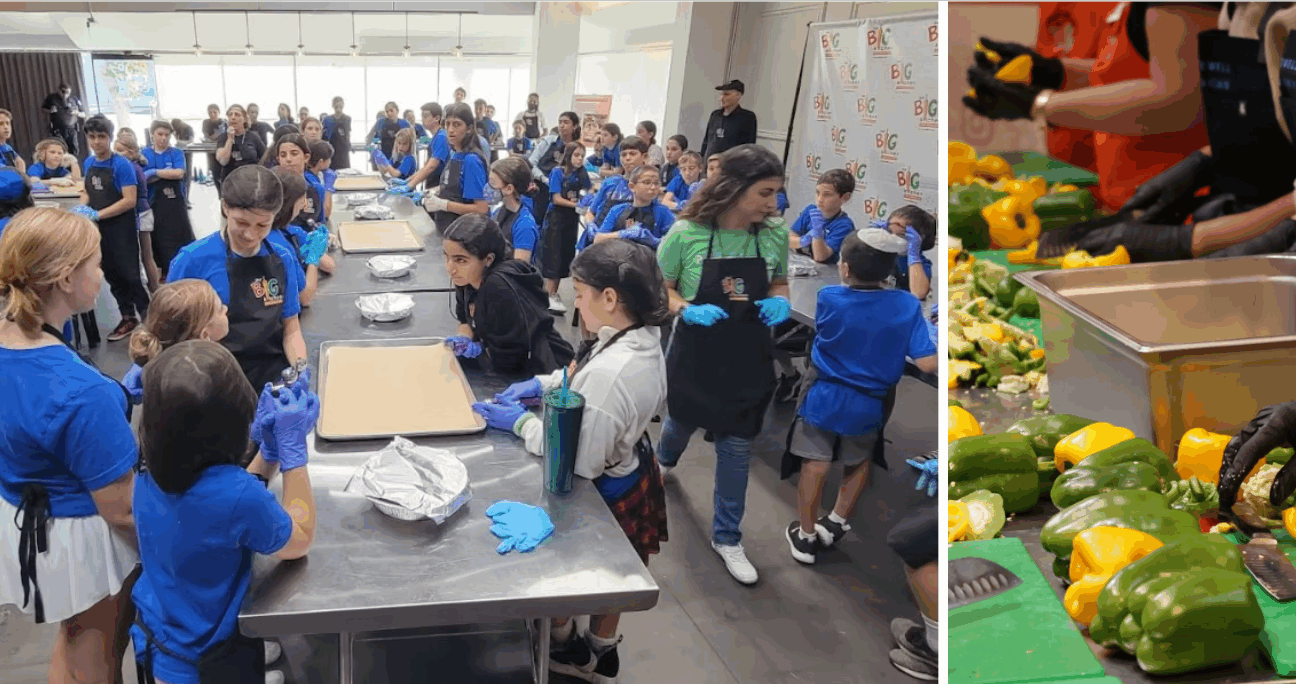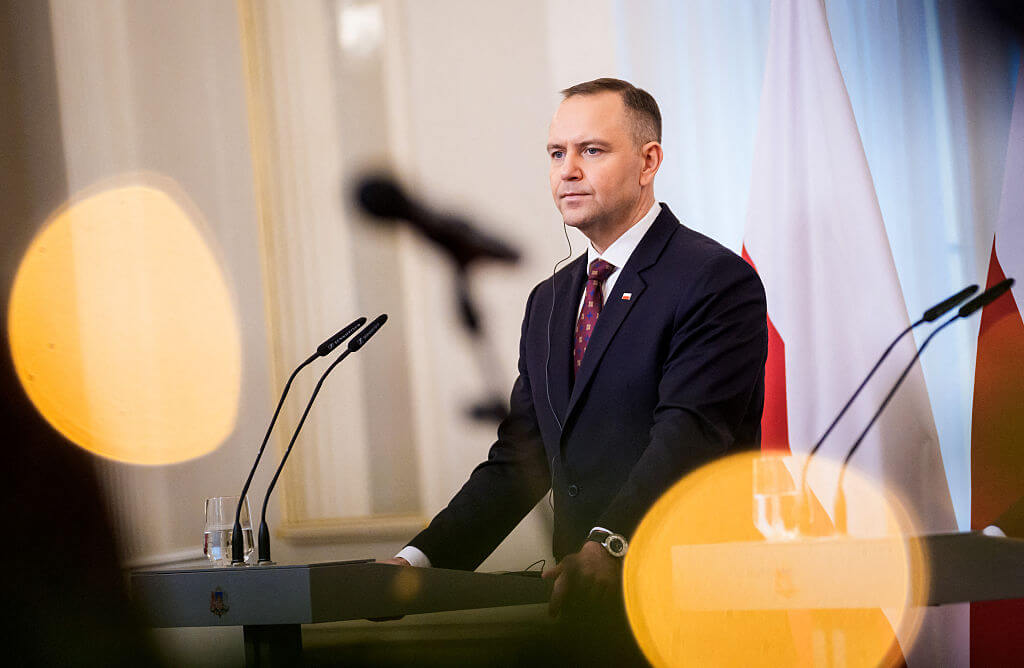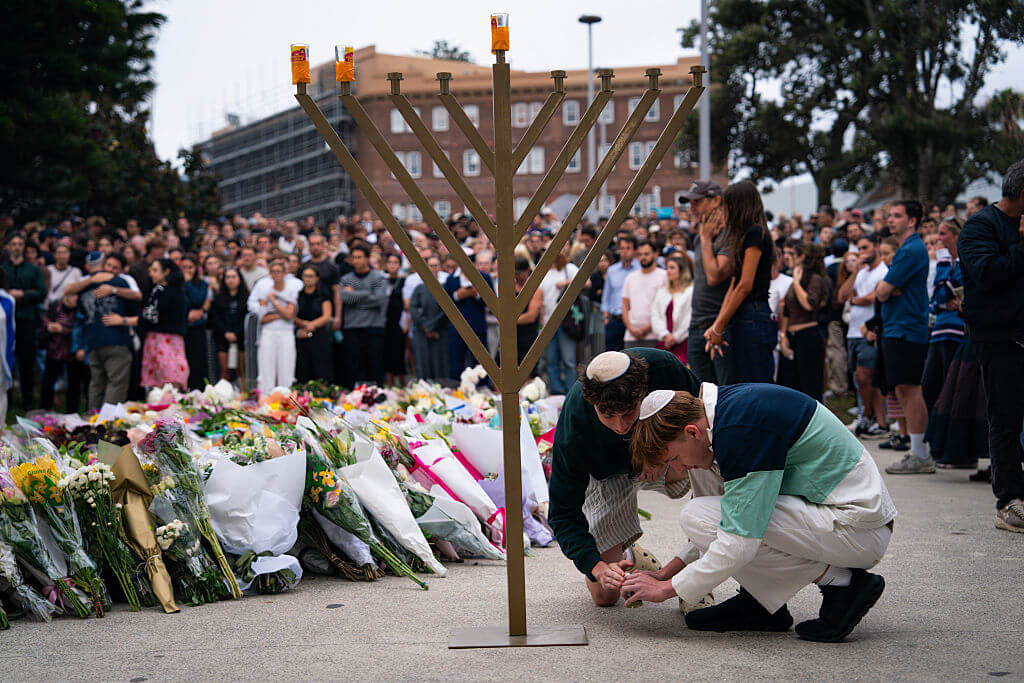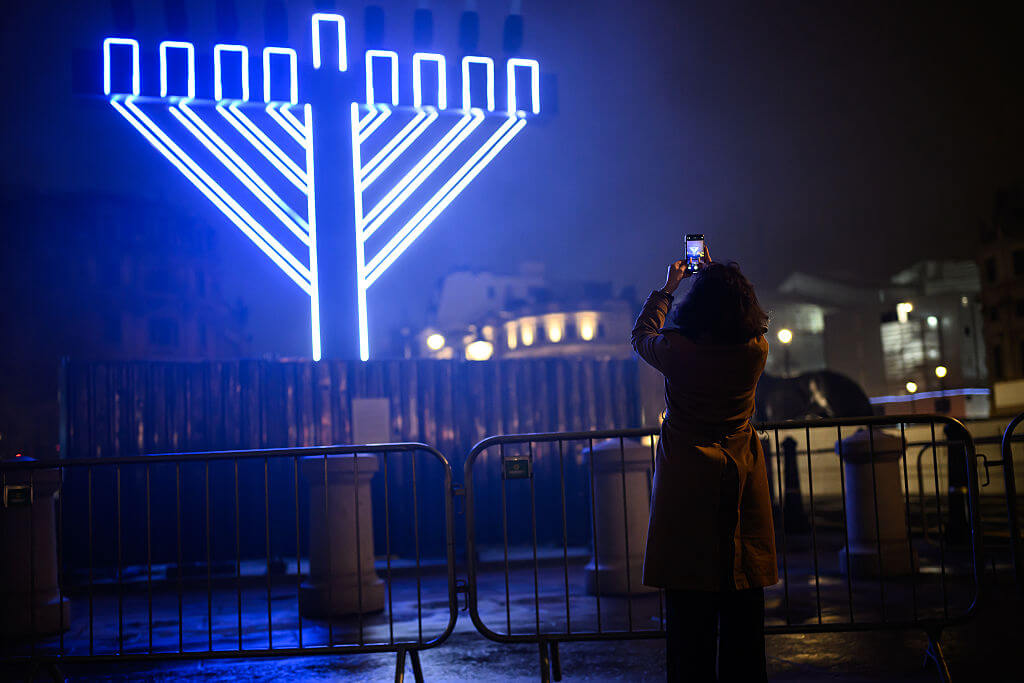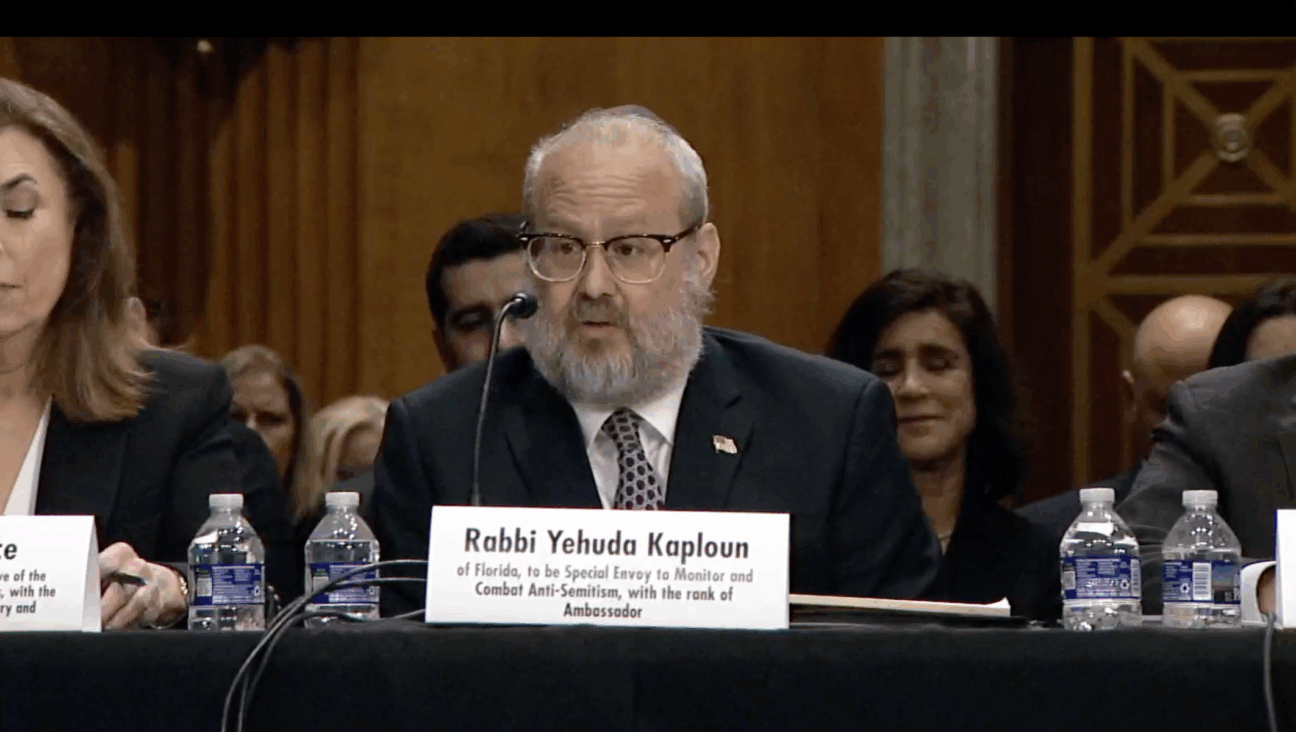What Would Yitzhak Rabin Think of Today’s Violence?

Mourners gather at memorial for Yitzhak Rabin after his assassination by a right-wing extremist. Image by Getty Images
“A gun that appears in the first act will be shot in the third.”
I thought about this phrase often after the assassination of Yitzhak Rabin. Many of those around me argued that the writing was on the wall and that all you had to do was look to see what was coming. And I saw it with my own eyes.
As the Director of Events and Excursions under the Rabin government, I witnessed Yitzhak’s character and leadership style at every level. During cabinet meetings in the office in which he was determined to pass resolutions in favor of Israeli society, during tours to schools and municipalities throughout the country in which he was humble and very human, he was careful to ask every single student, soldier and citizen about their wellbeing, where they came from in the country, and if they slept and ate as well as they needed. Rabin was a leader and a visionary. He was able to give you a sense of duty and a mission to work toward so that you could serve the country in the most dedicated manner possible.
During the last few months of his life, I witnessed a severe incitement campaign directed against him, a situation that led to various factions arising in Israeli society. The feeling was that every event that required Rabin to leave the office presented a real and present danger.
About a week and a half before the assassination, Rabin was invited to appear at the Wingate Institute. As soon as he left his car there were dozens of protestors standing across from him and hurling insults and threats. Despite this, Rabin went to the stage with his head held high, cool and confident in the message he wanted to convey. When the tense ceremony ended, I accompanied the prime minister to his car. I was shocked at the humiliation he had to face. Only when the car door closed after him and I watched him drive off to the next event was I able to breathe a sigh of relief.
This is how Rabin was. Doing things all the way to the end. A leader with a vision loud and clear, never to be frightened by threats or by obstacles. On the one hand he worked hard to eradicate terrorism, and on the other hand he worked to show mental fortitude and dedication to his truth: achieving a genuine peace agreement between the state of Israel and its Palestinian neighbors.
Even after I told him that he really could have been hurt during the above-mentioned incident, he replied: “I do not believe that a Jew would harm a Jew.” Even we did not believe it was possible. This was the moment when we truly felt that we were on the tipping point from incitement to violence against Rabin.
Could the disaster of Rabin’s assassination be repeated today? Could the current norm, in which youths are joining extremist organizations and groups that give legitimacy to racist chanting and slogans, lead to another murder? When I hear that shocking calls like “Death to the Arabs” are being tossed around as a regular part of soccer matches more often than the whistle of the referee or cheering from the crowd, I am afraid that the answer is yes. Organizations and movements that seek to prevent contact between Jews and Arabs do not fundamentally differ from the extremist views that, in the past, led to such shocking events.
If we look at the writing on the wall right in front of us today, it seems that there has been no significant change. Rabin’s assassination was classified at the time as an act in which an extremist took the law into his own hands and assassinated a leader just because he represented a view different from his own. Today, children and youths learn about Rabin’s assassination as a story from history.
We have an obligation to remove the violent discourse of incitement and racism that prevails among us. Those who harm participants in parades celebrating their freedom of sexual identity and preference in Israel belong behind bars. Social networking allows angry young people to hide behind a keyboard, while a click of the finger on the enter key allows them to post or tweet a message of hatred, divisiveness, extremism and intimidation on a regular basis. The feeling is that if your opinion differs from the consensus, it is best to avoid expressing that opinion, or risk being classified as weird or even as a traitor. In my opinion, today in our country, there is almost no pluralism.
And so, many find themselves asking a recurring question: What would Rabin think about what is happening in Israel today, the land of Israel that he so loved and admired? I believe, as he did during his time in office, that we must work to prevent people from reaching a point where they feel as though they have nothing to lose. He gave them hope for unity, true peace based on “love thy neighbor,” reducing their desire to act with extremism and cruelty toward one another.
Today, when I can look at the picture from the side and see the gun appear in the first act, I allow myself to worry about the fate of the leaders of tomorrow.
History can repeat itself if we do not open our eyes. The warning signs are right in front of us. What kind of society will exist here if we continue with this relentless incitement and racism? The responsibility to stop this from snowballing is ours. Educators, religious and spiritual leaders, parents and friends, we must remember that once, not so long ago, we believed that things could be different. We have an obligation to prevent the gun from firing again.
Shimon Peres always says that optimists and pessimists die the same — they just live very differently. Therefore it is better to live as an optimist. Seeing the good that exists throughout Israeli society, I choose to embrace the optimistic approach of Peres and to believe that things can be different.
Efrat Duvdevani heads the Peres Center for Peace. Previously she was the Director General for the President’s Office and the Director General of the Ministry of Development of the Negev and Galilee.
